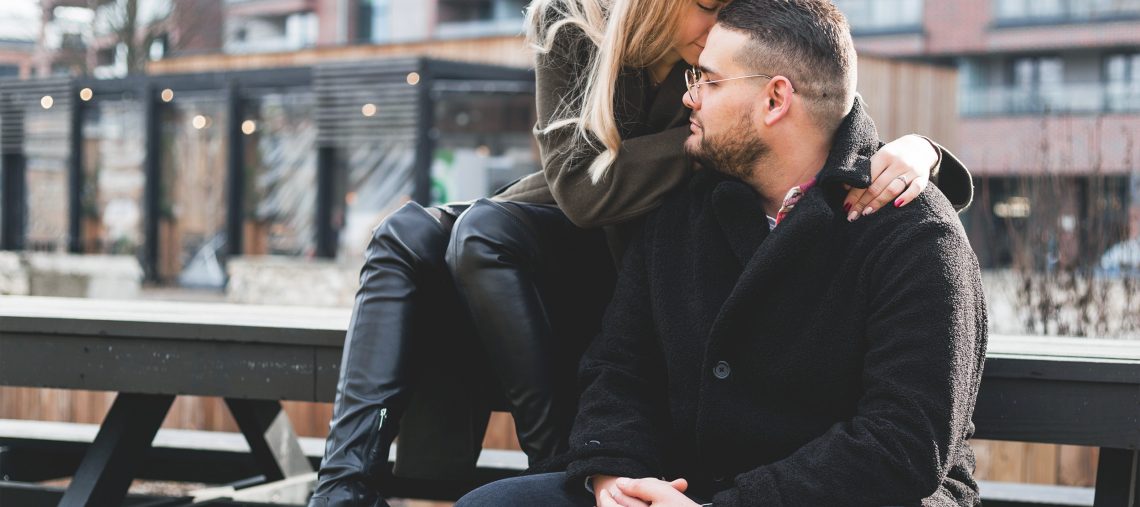
As the holiday season draws closer, families are faced with the uncertainty of how exactly these events will unfold. Traditions and long-held practices in celebrating holidays are up in the air as the world continues to grapple with the impact of the COVID-19 pandemic.
According to the CDC, about 41% of the population in the U.S. report experiencing mental health issues as a result of the pandemic, including anxiety, depression, and trauma-related symptoms. About 13% of the population admits to starting or increasing substance use. People in recovery from an addictive disorder face increased stress and an increased risk for relapse.
The holiday season can invite many emotions stemming from the traumas of our past, memories of previous holidays ruined by addiction, and anxieties about the future. Alice’s partner Greg* started a recovery program several months ago. Alice commented, “Our past Thanksgiving celebrations always ended up a disaster, especially last year. Now that Greg is in recovery and we have this COVID thing, we have to figure out what we are going to do this year.” Alice and Greg began talking about their expectations and hopes for this year’s celebrations.
Relationships have never been more important
A healthy relationship between partners is the single biggest predictor of long-term recovery for those impacted by addiction. Severe substance use and compulsive behavioral problems create significant damage to family rituals and roles in the couple relationship. An approach that supports couple recovery highlights the importance of both individual recovery, as well as relationship recovery. The implications are clear: Partners need to address how they will integrate recovery into couple and family life and specifically, manage the holiday season. Couple recovery involves conversations on how to provide support for each partner’s recovery (wellness) as well as relationship recovery. Let’s start with managing the holidays.
Rituals of connection provide safety and stability in relationships
In his book “The Relationship Cure,” Dr. John Gottman states that rituals are like routines in that they are repeated over and over so that they are predictable—everyone knows what to expect. The difference between a routine and a ritual is that rituals have symbolic meaning. Rituals draw people together creating safety, predictability, and connection. This is the opposite of what happens in active addiction where uncertainty and unpredictability create fear, confusion, and a lack of safety.
Three essential steps for couples and families for managing holidays this year
Step 1: Both partners acknowledge past trauma and triggers without blame or defensiveness. Use the “Softened Start-Up” formula describing perceptions, feelings, and needs. To avoid criticism, describe the self, not the partner. Sharing your feelings can be scary. It is important for partners to acknowledge, without judgment, what is important to each person and make that a part of the plan. Vulnerability actually increases intimacy and emotional connection. Talk about:
- Impact of addiction. Example: “Last Thanksgiving was difficult and upsetting because of the arguing and the impact of alcohol (and/or other substances) consumption on our celebration. I feel anxious about Thanksgiving this year, even though we started recovery. I need for us to figure out what we want this year and create new ways to celebrate that feel meaningful.”
- Impact of COVID-19. Example: “I miss being with our families. I am sad and frustrated. I would like to arrange a (video conference/socially distanced gathering/a family-only Facebook page with pictures and updates, etc.).”
Step 2: Develop a plan that supports what’s healthy for you, your partner, and you both as a couple. It can be empowering to establish a plan for welcoming the holiday season and essential for individuals and couples who have been impacted by addiction. Establish rituals that are predictable and meaningful as part of your plan. Before putting a plan together, ask each person what means the most to them about that holiday. Then decide what plan you would like to develop. Decide what happens and who does what and when.
Part of this plan may include revisiting Step 1 as needed and on a continuing basis. After all, one’s feelings never go away. If anything, they are bridges already built, waiting to be crossed to meet your partner on the other side. They are already there. You just need to use them in ways that are accepting of yourself and your partner.
Step 3: Make sure that this fits what is healthy for you. In the workshop Roadmap for the Journey: A Path for Couple Recovery, there is an exercise designed for decision-making involving partners writing out a list of core needs, recovery needs, and areas of flexibility. This sorting out helps define boundaries and supports good self-care. A final check before going through with the proposed agreements involves each partner asking themselves three questions:
- Is this decision potentially helpful to my own recovery or wellness?
- Is this decision potentially harmful to my own recovery or wellness?
- Is this decision neutral to my own recovery or wellness?
Example: Marty loved getting together with her family on video conferencing and looked forward to doing so during the holidays. Her partner, who is in recovery from an alcohol use disorder, stated that it was really uncomfortable personally, because of the drinking that took place during these conference calls. It was important to come up with a plan that addressed those concerns and made family video conferencing work for both partners. The core need was time with the family, a recovery need was creating a safe environment with the family, and an area of flexibility included the time of day for the call, which occurs before “happy hour.”
This process is a practice. Creating an openness to each other’s ideas, feelings, and needs provides the best environment for successfully navigating the holiday season.

